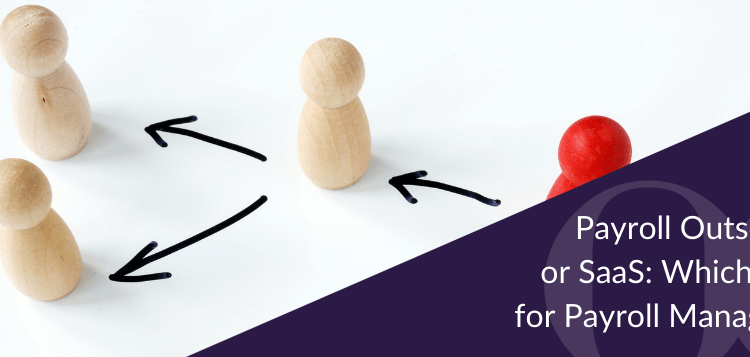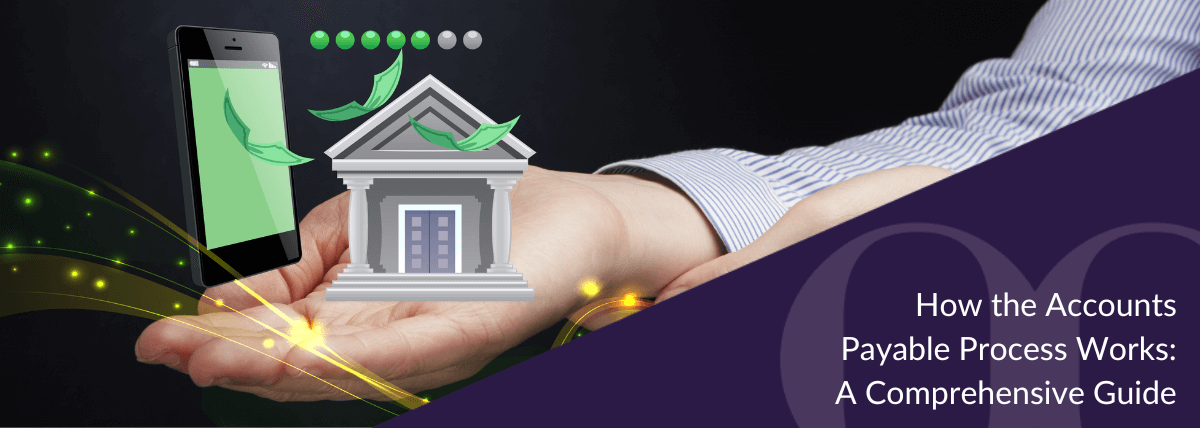Payroll Outsourcing or SaaS: Which is Best for Payroll Management
A well-managed payroll process is one of the key drivers for achieving employee satisfaction. However, it also hinges heavily on an effective payroll system that cuts through tedious paperwork to present pay checks to employees on a timely basis.
Today, Human Resource (“HR”) managers are doing away with cumbersome payroll processing and opting for more efficient solutions. Such solutions include engaging payroll outsourcing service providers or leveraging an all-in-one cloud-based Software as a Service (“SaaS”) Human Resource Management System (“HRMS”) solution. A SaaS HRMS is a method of software delivery where HRMS applications are located on external servers and accessed remotely over a network to manage payroll and handle employees.
How do these two payroll models benefit HR managers? How do they compare to each other? When determining which type of model is most appropriate for managing payroll, HR managers must first understand how each model can benefit their corporate objectives while managing costs; cross border functionality and; confidentiality of employees’ personal data.
In this article, we will discuss the key difference between the two payroll models so that HR managers can make informed decisions when selecting a solution that best fits their payroll needs.
01 Task & Responsibility – Who is Doing What?
With a cloud-based SaaS model, the payroll software is hosted offsite and HR managers gain access to the software via a network. With such a model, the SaaS service provider undertakes maintenance of the software and server, technical support, and data backup of the software system for a subscription fee. As such, HR managers do not have to pay a hefty price tag for owning the software. This is not only cost-saving for the business but takes away the burden of maintaining a proprietary system, consequently allowing HR managers to spend more time on handling employee requests, processing payroll and other primary HR duties.
Comparatively, a full or partial payroll outsourcing service can provide an even higher level of ease to HR managers. Such services take on most, if not all, of the payroll function with little need for HR management intervention. This implies that the HR department can enjoy greater flexibility in deploying its manpower to manage other in-house duties.
Let’s look at a summary of the key tasks and who is responsible in both scenarios.
| Tasks | Who is Responsible? | |
| Cloud-based SaaS | Outsourced Payroll | |
| Payroll processing | HR manager | Service provider |
| Handling employee & management enquiries | HR manager | HR manager |
| Data backup & system recovery | Service provider | Service provider |
| System upgrades | Service provider | Service provider |
| System support & development | Service provider | Service provider |
02 Ease of Payroll Management – Cross Border Expansion
As a company expands operations to global markets, the complexity of payroll management will multiply because of legislative requirements, market regulations and even differences in cultural practice. Furthermore, employees’ expatriate terms and tax obligations can make payroll processing increasing tricky especially if HR managers are unfamiliar with local regulations.
Take China as an example, due to the city-tier classification within the country, companies that are expanding their business into this market are faced with complex regulatory requirements because each city-tier has its own set of rules and conditions. As such, the structure of employee tax, insurance and allowance are also processed very differently across different states.
For companies venturing into new markets abroad, payroll outsourcing can offer an efficient and effective solution to this problem. Such service providers are usually well-versed with local policies and are in the best position to respond to dynamic changes that are happening in the global market. Entrusting payroll processing to an experienced service provider can reduce the risk of errors and non-compliance, freeing up local managers to concentrate on the growing business.
While the cloud-based SaaS model can provide software support that is essential for upkeeping payroll processing, HR managers who are unfamiliar with the foreign markets are still faced with tremendous difficulties in managing the payroll and employees’ enquiries. Unless the in-house HR team has a clear understanding of the foreign regulations, adopting a SaaS solution alone may still present a high degree of challenges for the business.
03 Time & Cost Efficiency – Operating in Multiple Markets
For larger companies that operate in multiple markets with a fair number of employees (usually more than 100), outsourced payroll can serve as an efficient solution that is both timely and cost-effective. With such services, companies need not invest in costly proprietary payroll software or hire and train an in-house HR team in each market to facilitate payroll processing.
This is especially true for foreign companies that are managing payroll out of a regional headquarter. As per the example on China, illustrated in the above point, it can be a mammoth task for HR managers to keep abreast of regulatory standards and changes across multiple countries/regions when they are not physically based there. At the most basic level every market has its own unique tax rates, standard employee entitlements, currency exchange and employee social security contributions. HR managers will need to spend a significant amount of time to acquire this information and more importantly stay up to date with any changes happening across the individual markets.
Appointing an outsourced payroll service provider that has a deep understanding of the local market can ensure that payroll processing is executed professionally and according to government standards.
Is a cloud-based SaaS model beneficial for companies that operate in multiple markets then? Using SaaS does present its own advantages, especially for companies with smaller headcounts. The subscription-based model is cost-effective and easy to implement across various markets. In addition, many SaaS solutions are robust enough that once the initial setup is complete the remainder is largely automated, simplifying payroll handling. However, for it to be successful HR managers will need to be prepared to spend time on staying up to date with the requirements of each market they operate within and updating the system settings accordingly, which in itself can be a time consuming task.
04 Confidentiality and Security – Is Employee & Company Data Secure?
One of the key concerns of HR managers when selecting between an outsourced payroll service provider and a cloud-based SaaS solution lies in confidentiality and security issues. Payroll processing is an extremely sensitive matter that involves employees’ personal data and compensation details, the risks of such information becoming public knowledge can be detrimental for any organisation.
While it is common knowledge that payroll service or software providers will attest to maintaining the confidentiality of data provided to them, HR managers must still take steps to consider if these partners have legitimate security features and robust processes in place to uphold the claim.
This is especially true for payroll outsourcing service providers that have full access to employees’ records, the risk/cost of a confidentiality breach may far outweigh that of the increased time required to implement a cloud-based SaaS model. The lack of in-house HR personnel involved in the outsourced process can certainly heighten the risk of exposure.
In the case of the cloud-based SaaS model, it is not without its risk too. Fundamentally, the cloud-based system is hosted on a network that has potential for security breaches by external parties.
Choose a Payroll Model That Aligns with HR Objectives
Every company has its own unique objectives and considerations when selecting a payroll solution. There is no right or wrong option but rather one that fits into the specific HR strategy seamlessly.
Outsourced payroll processing may be the easiest option for most HR managers, however, choosing the cloud-based SaaS model can be just as beneficial if the HR team requires a flexible and cost-effective solution that can simplify a legacy in-house process.
Whatever the choice, selecting a model that aligns with the company’s go-to-market plan can certainly optimise business potential and encourage long-term growth.
Looking for a Software Solution or an Outsourcing Partner?
At Boardroom, we are experts in helping companies, from corporations to fast-growing SMEs, with their payroll, allowing them to focus on what matters – growth and profitability.
From local payroll services handling to managing substantial payroll obligations for bigger companies spread across Asia-Pacific, we help businesses comply with local statutory regulations while ensuring their most valuable asset, the employees, are paid on time.
Contact us today and empower your organisation with greater freedom through our payroll solutions.
Or you can also learn more about our payroll solutions here.
This article is for informational purposes only and not intended to convey or constitute legal or any other advice. It is not a substitute for advice from a qualified professional.



